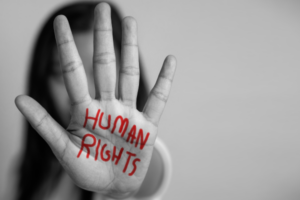Introduction:
Intellectual Property (IP) legislation plays a pivotal role in fostering innovation, protecting creators, and promoting economic growth. Countries around the world have developed their unique IP frameworks, influenced by their cultural, historical, and economic contexts. Brazil and Japan, two nations with contrasting histories and economies, offer distinct perspectives on IP protection. This article delves into the intricacies of IP legislation in these two countries.
1. Historical Context and Evolution:
- Brazil: Brazil’s journey in IP legislation began in the 19th century, with the establishment of its first patent laws. Over the years, influenced by its diverse culture and growing economy, Brazil has expanded its IP framework to protect various forms of creations, from traditional knowledge to modern innovations.
- Japan: Japan’s IP history is deeply intertwined with its rapid industrialization and technological advancements. From the early Meiji era reforms to its current status as a global tech powerhouse, Japan’s IP laws have consistently evolved to support its innovative spirit.
2. Patent Protection:
- Brazil: Brazil’s National Institute of Industrial Property (INPI) oversees patent registrations. The country offers protection for 20 years from the filing date, with specific guidelines for pharmaceuticals and biotechnological inventions.
- Japan: The Japan Patent Office (JPO) manages patent registrations, offering protection for 20 years. Japan’s patent system emphasizes efficiency, with provisions for accelerated examinations and patent opposition systems.
3. Trademark Regulations:
- Brazil: Brazil’s trademark protection, governed by the Industrial Property Law, offers protection for distinctive signs and logos. The country emphasizes the principle of first-to-file, with a protection period of 10 years, renewable indefinitely.
- Japan: Japan’s trademark system, under the Trademark Act, protects various signs, including 3D symbols and sound marks. The country offers protection for ten years, with provisions for renewal.
4. Copyright Laws:
- Brazil: Brazil’s copyright law, governed by the Copyright Law (Law No. 9,610), protects literary, artistic, and scientific works for 70 years after the author’s death. The country also recognizes moral rights, ensuring that creators are acknowledged for their contributions.
- Japan: Japan’s Copyright Law offers protection for authors’ works, including literature, music, and art. The protection period varies, with most works protected for 70 years post the author’s demise. Japan also emphasizes technological protection measures to combat digital piracy.
5. Industrial Design and Trade Secrets:
- Brazil: Brazil’s IP framework recognizes the importance of industrial designs, offering protection for 25 years. The country also has provisions for protecting trade secrets, emphasizing confidentiality and competitive practices.
- Japan: Japan’s Industrial Design Law protects unique designs for 20 years from registration. The Unfair Competition Prevention Act safeguards trade secrets, ensuring that businesses can protect their proprietary information.
6. Geographical Indications (GIs):
- Brazil: Brazil recognizes GIs, protecting products that have a specific geographical origin and possess qualities or reputation due to that origin. The country emphasizes the protection of its native products, from wines to handicrafts.
- Japan: Japan’s GI system, under the Act on Protection of the Names of Specific Agricultural, Forestry and Fishery Products and Foodstuffs, protects regional products. The country has a rich list of GIs, from Kobe beef to Yubari melons.
7. Challenges and Enforcement:
- Brazil: Brazil faces challenges related to IP enforcement, with issues of piracy and counterfeiting. The country is actively working on enhancing its enforcement mechanisms, collaborating with international entities and investing in awareness campaigns.
- Japan: Japan, with its advanced technological landscape, grapples with digital piracy and counterfeit goods. The country’s enforcement mechanisms, from customs controls to judicial remedies, are robust, ensuring IP protection.
8. International Treaties and Cooperation:
- Brazil: Brazil is a signatory to various international IP treaties, including the Berne Convention and the Agreement on Trade-Related Aspects of Intellectual Property Rights (TRIPS). The country actively collaborates with global entities to harmonize its IP standards.
- Japan: Japan, a global leader in innovation, is an active participant in international IP forums. The country is a member of the World Intellectual Property Organization (WIPO) and adheres to international standards, from the Patent Cooperation Treaty (PCT) to the Madrid Protocol.
Conclusion:
Intellectual Property legislation, while universal in its objectives, is a reflection of a country’s unique challenges, priorities, and historical trajectory. Brazil and Japan, with their contrasting landscapes and histories, offer invaluable insights into the complexities of IP protection. As the global economy becomes increasingly knowledge-driven, understanding these nuances becomes essential for creators, businesses, and policymakers navigating the intricate world of IP.



